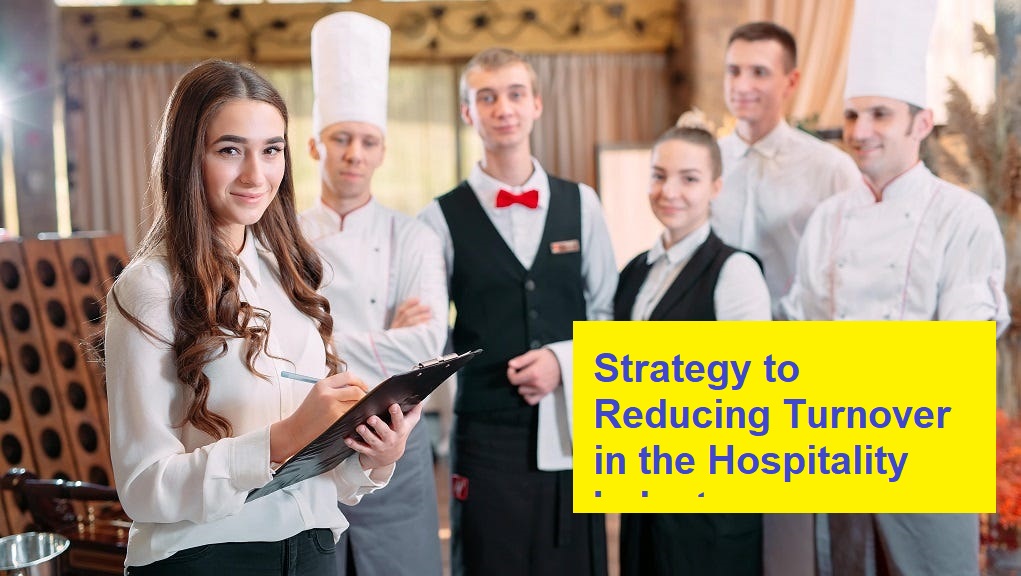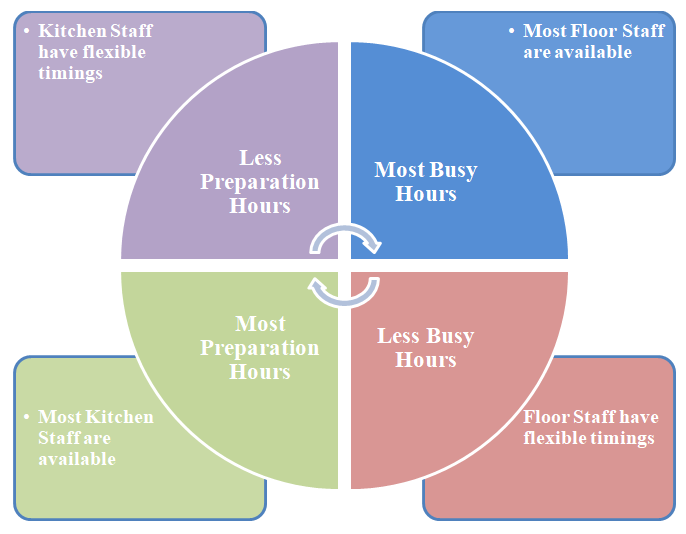Employee turnover can feel like an ongoing battle for the hospitality industry. With its high standards of service and the demand for seamless customer experiences, losing staff frequently can be both costly and disruptive. This write up seeks to uncover the most impactful way to keep talented individuals on board, highlighting the significance of human connection, understanding, and inspired leadership.

The Human Side of Turnover
In the hospitality industry, the value of human interaction can’t be overstated. Guests return not only for the amenities but also for the warm smiles and personalized service that create memorable experiences. Maintaining a consistent and engaged workforce is crucial for preserving this essence.
Different Approaches to Reducing Turnover
1. Fair Compensation and Benefits
Ensuring that employees feel they are compensated fairly is a crucial aspect of job satisfaction. Aligned with all other sectors, it’s also true for hospitality sector that when employees believe their pay and benefits are competitive, they are more likely to stay. However, salary alone doesn’t create loyalty; it’s the feeling of being valued and recognized that truly matters.
2. Opportunities for Growth
The hospitality industry is a dynamic field that offers countless opportunities for learning and growth. When employees can visualize their future within an organization and see clear paths for advancement, their commitment strengthens. Programs that foster career development not only boost morale but also cultivate a sense of purpose.
Therefore, there should be an integrated learning and development culture along with a clearly defined succession route map-
Fig. Hospitality succession plan aligned with clearly defined roles and objectives

3. Balancing Work and Life
In a sector where irregular hours are the norm, achieving a work-life balance can seem elusive. Yet, when employers prioritize flexibility and support, employees feel more in control of their personal and professional lives. Such balance is essential for long-term satisfaction and retention. The small idea like properly planning work volume or busy hours and assigning appropriate number of staff can be highly helpful. As simple as-
Fig. Simple idea for flexible work hours and work life balance for Hospitality Staff

4. Inspiring Leadership
Leadership sets the tone for any organization. Managers who inspire, support, and communicate openly with their teams can dramatically improve the workplace environment. Leadership isn’t just about directing tasks; it’s about connecting with individuals on a human level and understanding their aspirations and challenges.
5. Recognizing and Rewarding Efforts
Everyone likes to feel appreciated. Recognition and rewards go a long way in boosting morale and reinforcing positive behaviors. Whether it’s a simple thank-you note or a formal award, acknowledging employees’ hard work fosters loyalty and reduces the desire to leave.
The Most Impactful Factor: Inspiring Leadership
Of all research and studies we have till today, among the myriad strategies, inspiring leadership stands out as the most effective way to reduce turnover in the hospitality industry. Leaders who engage with their teams, listen to their needs, and motivate them to excel create a nurturing environment where employees feel valued and empowered.
Transformational Leadership
This style of leadership goes beyond managing tasks—it’s about inspiring and motivating employees to reach their full potential. Leaders who embrace this approach cultivate a sense of belonging and purpose, making employees more likely to stay committed to their organization.
Fig. Foundational elements of transformational leadership

It’s a management style that’s designed to give employees more room to be creative, look to the future, and find new solutions to old problems.
Creating a Positive Culture
A positive organizational culture, fostered by strong leadership, is essential for employee retention. When employees feel they are part of a community that shares their values and goals, their connection to the organization deepens, and the thought of leaving becomes less appealing.
Conclusion
In the hospitality industry, where personal interaction is key, inspiring leadership emerges as the most powerful tool for reducing turnover. By fostering a positive culture, promoting growth, and maintaining open communication, leaders can create an environment where employees feel valued, supported, and motivated to stay. In turn, this leads to a more stable workforce, better service, and a thriving business.
Suggested Readings:
- Choi, S., & Lee, K. H. (2020). Perceived career advancement opportunities and turnover intentions in the hospitality industry: The moderating effect of supervisor support. International Journal of Hospitality Management, 86, 102452.
- Chiang, F. F., & Birtch, T. A. (2010). Appraising performance across borders: An empirical examination of the purposes and practices of performance appraisal in a multi-country context. Journal of Management Studies, 47(7), 1365-1393.
- Davidson, M. C., Timo, N., & Wang, Y. (2010). How much does labour turnover cost? A case study of Australian four- and five-star hotels. International Journal of Contemporary Hospitality Management, 22(4), 451-466.
- Deery, M., & Jago, L. (2015). Revisiting talent management, work-life balance and retention strategies. International Journal of Contemporary Hospitality Management, 27(3), 453-472.
- Harris, L. C., & Ogbonna, E. (2013). Employee turnover: The role of cultural influences. Journal of Business Research, 66(2), 230-238.
- Hogan, S. J., & Coote, L. V. (2014). Organizational culture, innovation, and performance: A test of Schein’s model. Journal of Business Research, 67(8), 1609-1621.
- Kim, W. G., & Lee, C. H. (2016). Impact of transformational and transactional leadership on employees’ job satisfaction and performance: A comparative analysis. International Journal of Hospitality Management, 30(4), 758-767.
- Mohsin, A., Lengler, J., & Kumar, B. (2013). Exploring the antecedents of intentions to leave the job: The case of luxury hotel staff. International Journal of Hospitality Management, 35, 48-58.
- Nguyen, T. T., & Nguyen, T. N. (2021). The role of transformational leadership in promoting employee loyalty and engagement in the hospitality industry. Journal of Hospitality and Tourism Management, 48, 145-154.
